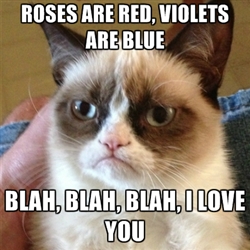- Brad DeLong wants Cosma Shalzi to figure out what the Chelyabinsk meteorite strike means for policy: “What should this piece of information do, decision-theoretically, to change our view of the situation we find ourselves in?” I’m not a statistics whiz, but I’d say: probably nothing. There’s no indication (yet) that the strike is inconsistent with current risk assessments of such events. What it might change is the politics of asteroid early-warning systems and research into ways of defending earth against heavenly aggression.
- North Korea warns China of another test?
- This piece on recent comments by PLA Senior Colonel Liu Mingfu came with the tweet (I paraphraase): “and Beijing wonders why China has no significant allies.” Apologies for not being able to find the intermediary.
- Lashkar-e-Jhangvi claims responsibility for anti-Shiite bombing in Pakistan.
- Karzai bans Afghan troops from calling in NATO airstrikes.
- The mood in Cairo.
- Kahl, Dalton, and Irvine have a new CNAS report on whether Iranian proliferation will cause Saudi Arabia to go nuclear.
- Anna Borshchevskaya on the upcoming Armenian election.
And also:
- Brendan Nyhan slams journalists who get all hot and bothered over US third-party movements.
- Steve Walt on the uneven quality of academic writing. Chris Zorn tweets an example of excellent, if overly verbose, academic-ese.
Daniel H. Nexon is a Professor at Georgetown University, with a joint appointment in the Department of Government and the School of Foreign Service. His academic work focuses on international-relations theory, power politics, empires and hegemony, and international order. He has also written on the relationship between popular culture and world politics.
He has held fellowships at Stanford University's Center for International Security and Cooperation and at the Ohio State University's Mershon Center for International Studies. During 2009-2010 he worked in the U.S. Department of Defense as a Council on Foreign Relations International Affairs Fellow. He was the lead editor of International Studies Quarterly from 2014-2018.
He is the author of The Struggle for Power in Early Modern Europe: Religious Conflict, Dynastic Empires, and International Change (Princeton University Press, 2009), which won the International Security Studies Section (ISSS) Best Book Award for 2010, and co-author of Exit from Hegemony: The Unraveling of the American Global Order (Oxford University Press, 2020). His articles have appeared in a lot of places. He is the founder of the The Duck of Minerva, and also blogs at Lawyers, Guns and Money.



I just glanced at Walt on academic writing (thanks to the link here). I notice he absolves (copy)editors at university presses of any blame. That’s wrong. Anyone who has spent any time with university press books in recent years knows that the quality of copyediting at certain — not all — university presses is terrible. If the author is good, fine. But if not, he/she is not going to get much help from the copyeditor, at least at certain presses.
Yep. But there’s a garbage-in/garbage-out quality to the process. I should know–being a culprit and all.